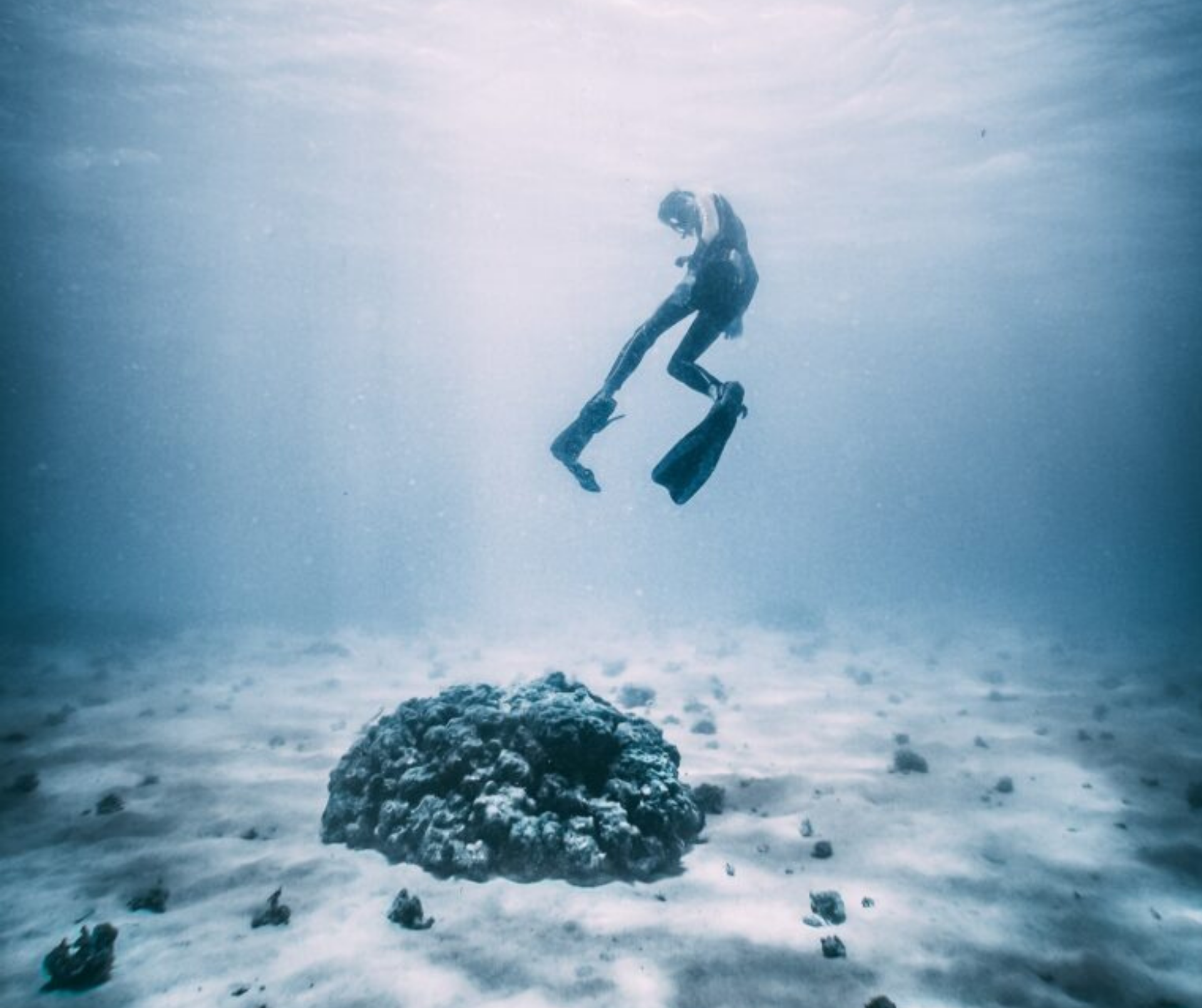
There’s Something in the Sea That’s Not Getting the Appreciation it Deserves.
It grows FAST and could help greatly in our efforts to tackle the climate crisis.
Carbon capture. A growing number of us are starting to understand the reality of its importance, it’s necessary and sometimes can actually be really cool, not to mention exceptionally beneficial.
Benefits can be wide-ranging – aside from the actual capturing of carbon – for example, creation of jobs, improving local and regional health outcomes, increasing the resilience of natural landscapes and food/resources, providing educational opportunities and a big one that’s often considered last, scientific and R&D contributions.
Every now and then you come across a ‘solution’. An idea [usually from someone incredibly passionate and highly knowledgeable on a specific thing] that you’re just like, yea obviously we should do loads more of that. And then you learn actually it’s something that’s largely been forgotten or ignored in some places.
The incredible folks over at @City to Sea, who work tirelessly to educate and tackle plastic pollution entering our waterways and oceans (among all sorts of other awesome initiatives), are on a first-of-its-kind scientific voyage with the Darwin200 environmental research organisation. They’re skipping across UK waters visiting ports and coastal regions to investigate plastic pollution. Important, to say the least.
First of its kind!? In 2021 you could be forgiven for thinking we might already be clued in on what the levels of plastic pollution are in UK waters, so well done to all those who are breaking ground on the issue – seems like a no brainer to be measuring, especially when we’ve been tracking atmospheric carbon for a generation and the size of the pacific garbage patch for a decade-plus.
I recently read about another miraculous first of its kind initiative that got me thinking, just how aware are we of the opportunities this brilliant island of ours presents?
The initiative; Sussex became the first UK council to ban trawler fishing along its portion of coastline. This might seem like a valiant effort to protect the lil’ fishies and replenish stocks, perhaps in the wake of Seaspiracy? And it is, kinda. There are myriad reasons but a key one is to protect and regrow the Sussex kelp forests. The kelp forest along the Sussex shore has decreased from 40km long and 4km deep [like, wide-deep not literally 2.5 mile-long strands of kelp ya nutter… Good ole’ Wikipedia says they grow up to 80 meters in length], to… well, not very much at all. Nationally our kelp forests have declined by more than 90% since 1987 –
Fishing practices, dredging, and trawling have played a pretty large part in that. If you’ve read about regenerative farming at all then think of trawling as doing similar damage to ploughing and tilling a field. Chops up all the kelp, damages the seabed, lil’ fishies bugger off to live somewhere else.
For once it’s not a technology I’m going to hammer on about, although there are some interesting and again, necessary advancements kicking about in that sphere. But let’s agree to agree the natural solutions are the coolest, right? What’s so brilliant about them is they actually laugh in the face of all the really tricky geoengineering, technological and try-hard expensive solutions.
Just plant some seaweed, or kelp, or whatever you call it.
I recently spoke with Howard Gunstock who’s doing exactly that through his brilliant [and growing] operation “Carbon Kapture”. Howard hopes to plant a network of kelp farms across UK waters to provide a crop to harvest while also contributing to restoring natural ecosystems than not only improve fish stocks but increase the carbon absorbed by available carbon sinks – something the Marine Conservation Society and Rewilding Britain have recently (and historically) been calling for, Talk about ahead of the curve. And there are SO many benefits here.
Yup, Kelp. Seaweed. The tangy, sometimes slimy, sometimes pickled or dry and crunchy organism that gets everywhere. It has a profound number of uses and applications, pretty nuts that it’s not a more widely appreciated plant already…
If you want a proper in-depth look at the benefits and uses for kelp, here are a couple of sources to check out;
- Podcast “How to save a planet” with Dr Ayana Johnson and Alex Blumberg has a two-part episode “Kelp Farming, for the climate”.
- Carbon Kapture’s page, Why Kelp? is handy.
- Even flippin’ Holland & Barrett have a page on the stuff
- Ecosia – “Kelp…”
If you care to follow all those links because you have a life here are some examples [*spoilers*]; food additives, animal feed, compost/fertiliser, food – like, cook it, pickle it or just eat it raw, dead good for you, superfood-healthy – cosmetics, biofuel, bioplastics and there’s R&D going on with lots of companies to figure out more. Most importantly there’s kelp-infused beer. All this before you even consider the environmental benefits. Blimey, I’m glad I’m sat down.
How ‘bout them environmental pros then?
Where to begin.
Some obvious visible benefits include creating lots of wild or hybrid aquaculture habitats for fish alongside kelp farming – if managed sustainably. Over time you’ll spot more dolphins wanting to hang out, things with lots of legs, dodgy antennae, funky colours, microbes for those tiny things to munch on – a biome. Bit like a diverse forest on land, different trees with moss all over the shop, mushrooms and insects and birds everywhere. So, kelp forests literally bring wildlife back encouraging recovery after decades of persistent exploitation with limited enforcement of somewhat weak laws for marine protection. Acting as sprawling grounds for fish, cover for predators, crustacean friendly, you can grow oysters in the area in some climates, it grows super quickly, improves water quality, reduces acidification and absorbs impact from storm surges which help prevent run-off, subsidence and reduces impacts on infrastructure. It’s a shame we need to monetise such a thing and no doubt if more dolphins start showing up more folks will want to sail out and see them – but that can be done sustainably too so at least capitalism is offering up a decent opportunity here. Mark that down as a positive under ‘jobs’.
There’s also research that has shown cows give off as much as 60% less methane when their diet is supplemented with small amounts of Seaweed. Other studies suggest it’s even higher! And given that globally beef production is estimated to contribute around 15% of all CO2e emissions, that’s pretty huge impact potential.
So as I wrap up before I head to the fridge for a beer, I’m hoping I’ve highlighted some reasons why you should be paying attention to, and looking out for, kelp (seaweed) based products. Buy um’, eat um’, gift um’ to pals. It’s brilliant and if an industry is allowed to scale in a manner that benefits local communities, encourages business and entrepreneurship, brings jobs and incomes to families while also helping fight the climate crisis, then sh*t! We should jump aboard.
I’ll leave you with one last mind-blowing bit about bloody seaweed saving the best ‘til last. It’s believed kelp absorbs a whopping 20 times more carbon dioxide than on-land forests per acre. It’s mental, it can frow 2 feet per day – take that rhubarb (which grows so fast you can hear it – do you think fish can hear kelp growing?)
- https://www.citytosea.org.uk/darwin-200/ – City to Sea post on Darwin200 plastics investigation/voyage
- https://www.totallyveganbuzz.com/news/sussex-becomes-the-first-uk-council-to-ban-trawler-fishing-for-the-climate/ – Sussex bans trawler fishing
- http://oceanblues.brightonmuseums.org/wp-content/uploads/2020/07/kelp-graphic.png -kelp image
- https://www.theguardian.com/environment/2020/oct/09/revealed-97-of-uk-offshore-marine-parks-subject-to-destructive-fishing – 97% of UK marine protected areas subject to trawling.
- https://www.independent.co.uk/climate-change/news/rewild-oceans-report-net-zero-emissions-b1841511.html – rewild the oceans article
- https://open.spotify.com/episode/093q8GaZB5OAZJClUUSKx5?si=Bh3DTO8lQw-QMki4t4XoYQ&utm_source=copy-link – podcast
- https://www.carbonkapture.org/why-kelp – Why Kelp?
- https://www.hollandandbarrett.com/the-health-hub/food-drink/nutrition/kelp-benefits/ – Holland & Barrett
- https://journals.plos.org/plosone/article?id=10.1371/journal.pone.0247820 – cow methane study
- https://algaeplanet.com/an-update-on-cows-red-seaweed-and-methane-emissions/ – cows 60% less methane article
- https://oceana.org/blog/seaweed-could-be-scrubbing-more-carbon-atmosphere-we-expected – kelp 2 feet per day


